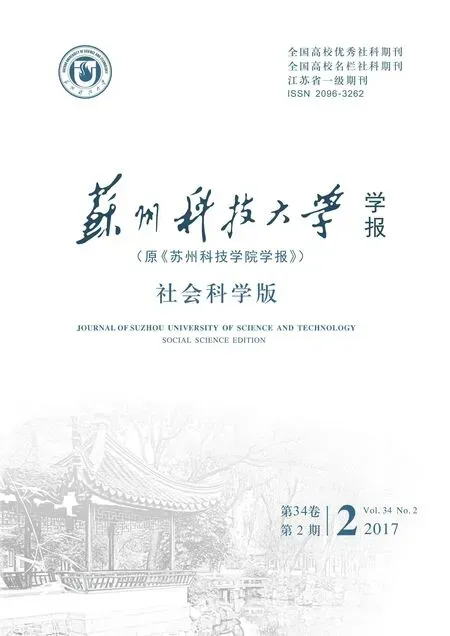Abstascts
The Cognition, Identification and Practice of the Socialist Core Values
CUI Zhizhong
(School of Marxism, Qinghai Normal University, Xining Qinghai 810008)
Abstascts
The Cognition, Identification and Practice of the Socialist Core Values
CUI Zhizhong
(School of Marxism, Qinghai Normal University, Xining Qinghai 810008)
The subjects of value has been required by the cultivation and practice of the socialist core values to precisely comprehend the scientific connotation of the socialist core values at the ideological level, to sincerely accept the value propositions of them at the emotional level, and to consciously practice the essential requirements of them at the behavioral level. The ideological cognition and emotional identification of the people could be effectively improved by enriching the fundamental connotation of the socialist core values, improving their methods of publicity and perfecting their guiding mechanism of evaluation. The overall requirements of the subjects of value at all the levels as individual, social and national should be comprehensively examined and weighed in the practice of the socialist core values, so that the value pursuit at the individual level could be respected in the course of maintaining the high-order value ideas at national and social levels.
the socialist core values; theoretical cognition; emotional identification; practice of value
The Review and Reflection of “The Debate on Science and Metaphysics”
SANG Donghui
(Harbin Academy of Social Sciences,Harbin Heilongjiang 150010)
Abstract: In the retrospect of the debate between science and metaphysics, the bone of contention between the two focused majorly on the following three aspects as whether science had already “gone broke”, the relation between science and outlook of life, and the way-out of China. In accordance with the historical background of the debate and its focuses, it is not difficult to see the debate was in nature a Chinese reprint of the controversy between scientism and humanism in the west, and a conflict of viewpoint between radicalism and conservatism in China. The only way to a thorough settlement of the conflict and debate should be nothing but the fusion and compatibility between scientism and humanism.
Key words: “the debate between science and metaphysics”; science; outlook of life
Xu Zhenqing and the Poetic Style Trend of the Doctrine of Backing to the Ancient in Ming Dynasty
LI Shuanghua
(School of Marxism, Nanjing Tech University, Nanjing Jiangsu 210009)
Abstract: In the poetic circle of Ming dynasty, there were two different trends. One was the poetry with serving politics and religions as their nuclear doctrine, while the other poetry with natural sensing and expressing. Xu Zhenqing did not takeTheBookofSongsas the source of poetry, obviously deviating from the classical poetic tradition of serving politics and religions. With his poetry creation and theory breaking away from the utilitarian of the Confucianists, he formed a new poetic notion which was far beyond utilitarian. Xu was the important representative of the poetry school of natural sensing and expressing in Ming dynasty.
Key words: poetry in Ming dynasty; Xu Zhenqing; Li Mengyang; a doctrine of backing to the ancient; serving politics and religions; natural sensing and expressing
Two Models of Writing Theory in Sharp Contrast:“Obscure Diction and Abstruse Words” vs. “Pithy Style and Logical Structuring”
LU Dehai
(School of Humanities and Social Sciences, Suzhou University of Science and Technology,Suzhou Jiangsu 215009)
Abstract: Liu Kai was the forerunner of ancient style prose in early Song dynasty while Ouyang Xiu, the representative personage of the ancient style prose although Song dynasty. They both had the experience of learning from Han Yu and thus being fundamentally influenced by Han in their literary theory. However, the former learned from Han but hadn’t obtained Han’s spirit, claiming that although ancient style prose “did not necessarily depend on obscure diction and abstruse words”, yet the complacent part was really its “obscure diction and abstruse words”, while his purport of “being dependently long or short in accordance with words” was just poles apart to Han's “both being suitable regardless of the length of words and the superiority of tones”, thus making his own works of ancient prose nearly intricate and obscure in style and making himself no function of promotion to the advance of the literary criticism in the Song dynasty. On the other hand, Ouyang Xiu learned from Han but never tried to be similar to him, having changed Han's “suiting words to the spirit of prose” into his own “being classical in words to faithful matters”, attaching great importance to “pithy style and logical structuring” in prose writing, probing diligently into the laws of prose writing, having opened a prevailing study of literary theories from then on, and led the ancient style prose in Song dynasty to a unassuming and natural path of development, which had been completely opposite to that with “obscure diction and abstruse words”.
Key words: literary theory; Liu Kai; Ouyang Xiu; obscure diction and abstruse words; pithy style and logical structuring
Yun Yuding’s Characteristics and Values of Theory on History as inChengZhaiDiary
SHU Xilong,HUANG Rujuan
(School of History and Culture, Hanshan Normal University, Chaozhou Guangdong 521041)
Abstract: Yun Yuding, serving as a leading historian in the late Qing dynasty for nineteen years, being proficient in history and classics. Because Yun Yuding had accompanied the emperor for a long time, he mastered a large number of little-known historical information, having accumulated a wealth of historical insights. His expounding of history was the concentrated reflection of his historical thoughts. WithChengZhaiDiaryas the kernel historical data, combined with the mentality of Yun Yuding as a traditional scholar, the theories on history by Yun Yuding will be classified in this paper, the characteristics of his theories be analyzed, the academic value and that of historical data of the theories be extracted and purified, on the basis of which the gain and loss of his theories on history has been evaluated objectively in the context of radical changes in the late Qing dynasty.
Key words: Yun Yuding; theory on history; characteristics; value

